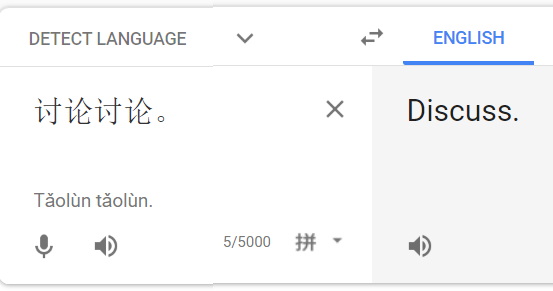Doubling Verbs

In a previous post, I talked about how adjectives are often doubled in sentences, typically for emphasis. Verbs can also be duplicated, but that is used to soften the verb or mood. It also generally indicates that the action won’t take too long, or won’t be too hard.
The formal term for this in Mandarin is reduplication of the verb. (Mind you, that doesn’t make sense to me as duplication should mean two, and reduplication should then mean four).
For example, the sentence:
请看看。(Qǐng kàn kàn.) means “Please take a look”.
As well as 看 (kàn) which means to look, it’s often used with these:
听 (Tīng) -> listen 读 (Dú) -> read 想 (Xiǎng) many meanings but in this case probably -> think 走 (Zǒu) -> go or walk 跑 (Pǎo) -> run 跳 (Tiào) -> jump 闻 (Wén) -> smell
Two word verbs can also be doubled, but unlike adjectives where AB becomes AABB, with verbs AB becomes ABAB.
For example:
讨论讨论 (Tǎolùn tǎolùn) means to discuss
UPDATE: Quick thanks to John fan Zhang for reminding me about another related pattern. I meant to include it in this blog post but for some reason, I forgot.
Instead of just VV for a doubled verb, it’s also common to put 一 (Yī) in between the two verbs. So, instead of just VV, it’s V yi V. That means that instead of this:
看看 (Kàn kàn)
It’s common to hear:
看一看 (Kàn yī kàn)
The same pretty much applies to any of the verb doublings.
2020-02-07
